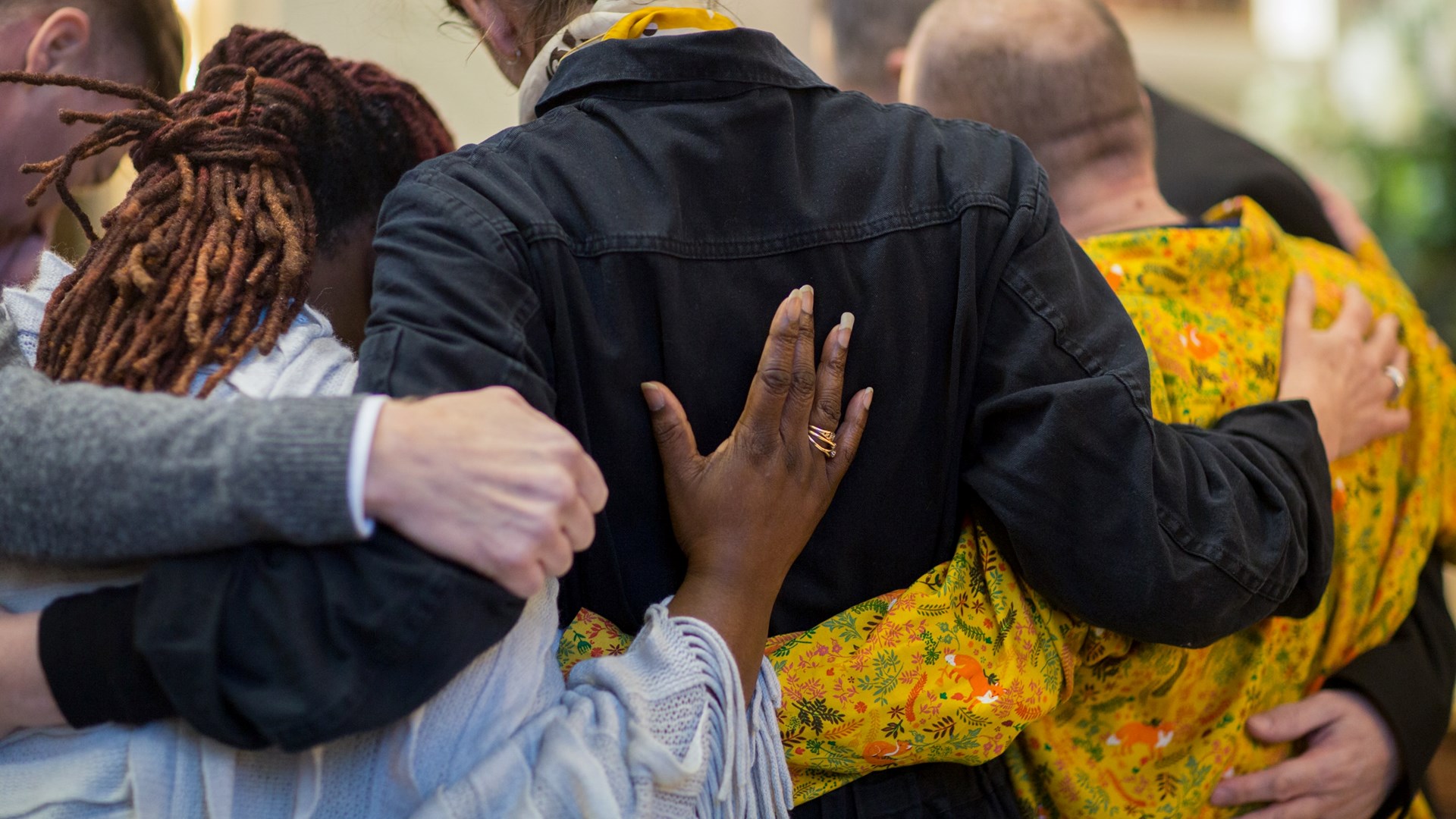
Supporting a nation through collective grief
UKCP psychotherapists Syed Azmatullah (Azmat), Tamara Sears and John-Paul Davies share their psychotherapeutic perspectives on national feelings on grief and loss when a public figure dies. Psychotherapy’s ability to hold all the feelings that can stir, including conflicting or difficult emotions, makes it a important form of support.
Azmat begins: ‘When we live through moments where life is becoming history, something fascinating happens to the human consciousness. We move from being ‘I’ the individual, focused on our small sphere of influence and control over our own lives and we feel more connected to the ‘we’, a collective consciousness of community, emotion and conflicting opinions and moods.
‘As with all therapeutic work, it is our role to listen and support the processing taking place, not just individually but across the collective psyche.’
Azmat adds that there are ethical aspects of practitioner self-care: ‘As psychotherapists any significant moment that shapes this collective consciousness will impact us and our clients. From fear about climate change, the war in Ukraine and the cost-of-living crisis, we are as affected by the mood of the nation as our clients. It is important for us to acknowledge the validity of all the feelings arising in these moments and seek – if necessary – extra supervision or psychotherapy to be supported with the depths of our feelings right now.’
A reminder of something we all have to deal with
UKCP psychotherapist Tamara Sears says: ‘Death is a funny thing. We know it’s coming but to get on with our lives it’s almost like we need to forget about it. But then something comes along that jolts us out of our forgetting and reminds us of it. It’s a reminder that death awaits us all. It’s this shared inevitability of death that makes it so important to come together in times of grief, to register that this is something we all have to deal with.
‘Death also has an uncanny knack of forcing us to stop and think about the things that are really important in our lives, the people that truly matter and the small and petty squabbles that suddenly don’t seem so important. Life is precious.’
Creating connection
UKCP Psychotherapist John-Paul Davies adds: ‘Grief is of course one of the most painful emotions a human being can experience. It’s fundamentally about love, though, and experiencing and sharing it can therefore be both connecting and unifying. Whether it’s recounting fond memories, celebrating life, expressing love, empathy, respect and gratitude, being part of the ceremonies and rituals or taking stock and thinking about our own mortality and the value of our loved ones to us, these are all about connection.
‘In an age of unprecedented change and seismic cultural shifts, global shocks, instability, pivoting and u-turns, when it comes down to it, the only truly lived life is a loved one.’
The rich variety of emotions being shared have validity
Share
Like most websites, we use cookies. If this is okay with you, please close this message or read more about your options.

